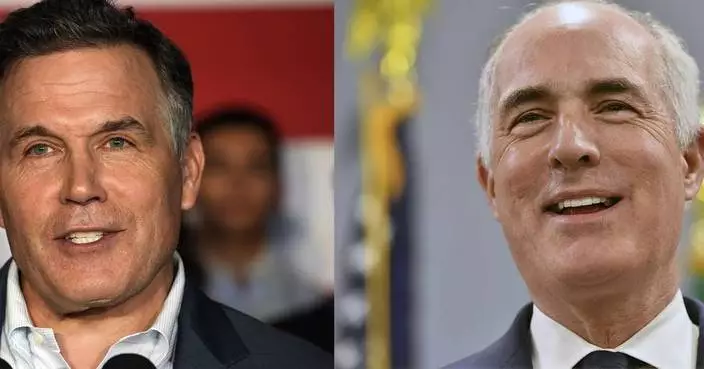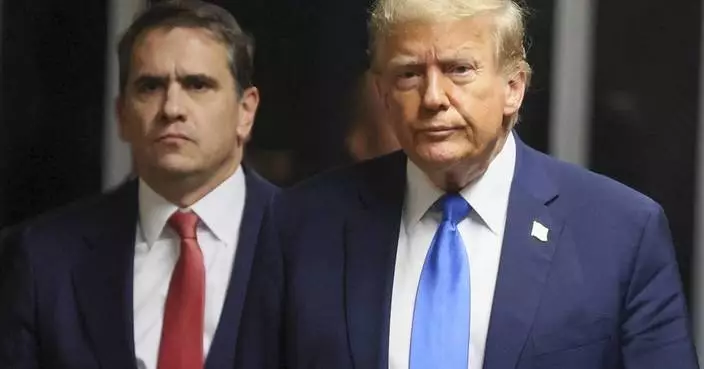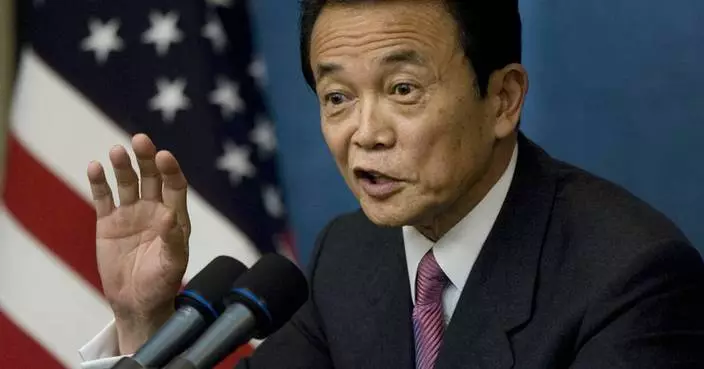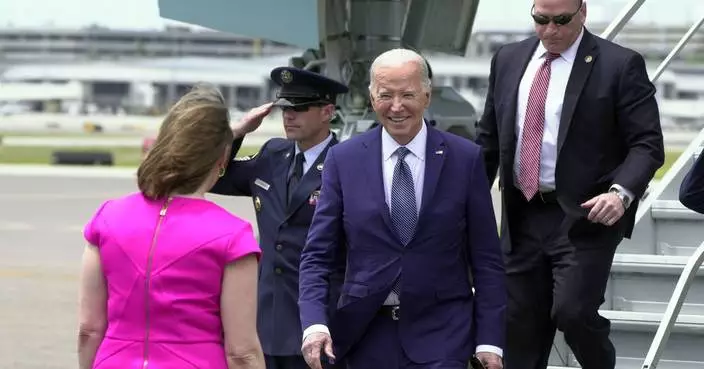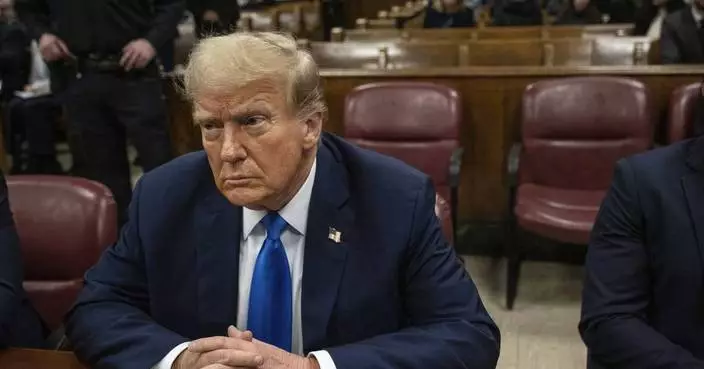President Donald Trump on Sunday mocked the leader of nuclear-armed North Korea as "Rocket Man" while White House advisers said the isolated nation would face destruction unless it shelves its weapons programs and bellicose threats.
Trump's chief diplomat held out hope the North would return to the bargaining table, though the president's envoy to the United Nations said the Security Council had "pretty much exhausted" all its options.
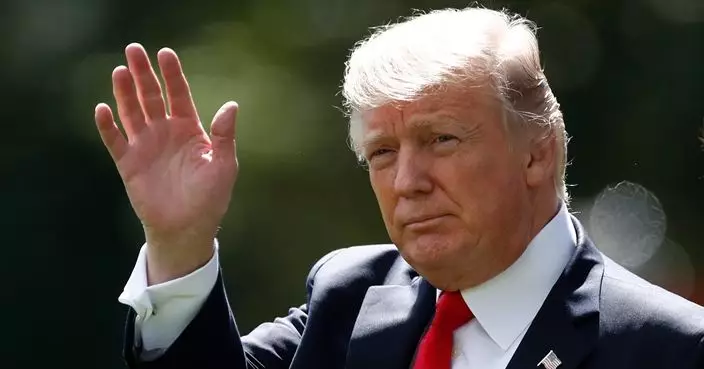
FILE - In this Sept. 15, 2017 file photo, President Donald Trump waves as he walks from the Oval Office of the White House in Washington to Marine One for the short trip to Andrews Air Force Base, Md. (AP Photo/Carolyn Kaster)
Kim Jong Un has pledged to continue the North's programs, saying his country is nearing its goal of "equilibrium" in military force with the United States.
North Korea will be high on the agenda for world leaders this coming week at the annual meeting of the U.N. General Assembly, Trump's biggest moment on the world stage since his inauguration in January.
Trump is scheduled to address the world body, which he has criticized as weak and incompetent, on Tuesday.
Trump, who spent the weekend at his New Jersey golf club, tweeted that he and South Korean President Moon Jae-in discussed North Korea during their latest telephone conversation Saturday.
Asked about Trump's description of Kim, national security adviser H.R. McMaster said "Rocket Man" was "a new one and I think maybe for the president." But, he said, "that's where the rockets are coming from. Rockets, though, we ought to probably not laugh too much about because they do represent a great threat to all."
McMcaster said Kim is "going to have to give up his nuclear weapons because the president has said he's not going to tolerate this regime threatening the United States and our citizens with a nuclear weapon."

In this Sunday, Sept. 10, 2017, photo, Chinese tourists stand watch on Tumen bridge linking China and North Korea, as seen from Yanbian, Jilin province. (AP Photo)
Asked if that meant Trump would launch a military strike, McMaster said "he's been very clear about that, that all options are on the table."
Some doubt that Kim would ever agree to surrender his arsenal.
"I think that North Korea is not going to give up its program with nothing on the table," said Democratic Sen. Dianne Feinstein of California, a member of the Senate Intelligence Committee.
Kim has threatened Guam, a U.S. territory in the Pacific, and has fired missiles over Japan, a U.S. ally. North Korea also recently tested its most powerful bomb.
The U.N. Security Council has voted unanimously twice in recent weeks to tighten economic sanctions on North Korea, including targeting shipments of oil and other fuel used in missile testing. Trump's U.N. ambassador, Nikki Haley, said North Korea was starting to "feel the pinch."
Trump, in a tweet, asserted that long lines for gas were forming in North Korea, and he said that was "too bad."
Secretary of State Rex Tillerson said he was waiting for the North to express interest in "constructive, productive talks."
"All they need to do to let us know they're ready to talk is to just stop these tests, stop these provocative actions, and let's lower the threat level and the rhetoric," he said.
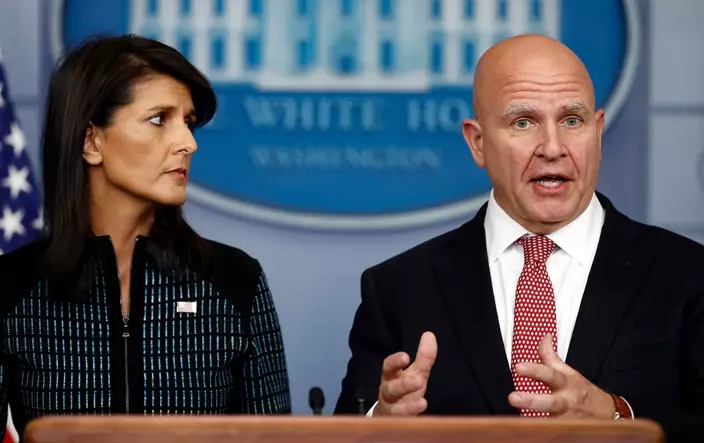
National security adviser H.R. McMaster, right, and U.S. Ambassador to the UN Nikki Haley, participate in a news briefing at the White House, in Washington, Friday, Sept. 15, 2017. (AP Photo/Carolyn Kaster)
But Haley warned of a tougher U.S. response to future North Korean provocations, and said she would be happy to turn the matter over to Defense Secretary Jim Mattis "because he has plenty of military options."
Mattis said after Kim tested a hydrogen bomb earlier this month that the U.S. would answer any threat from the North with a "massive military response, a response both effective and overwhelming."
Trump has threatened to rain "fire and fury" on North Korea if the North continued with its threats. Haley said that wasn't an empty threat from the president but she declined to describe the president's intentions.
"If North Korea keeps on with this reckless behavior, if the United States has to defend itself or defend its allies in any way, North Korea will be destroyed and we all know that and none of us want that," Haley said. "None of us want war. But we also have to look at the fact that you are dealing with someone who is being reckless, irresponsible and is continuing to give threats not only to the United States, but to all their allies, so something is going to have to be done."
In other developments Sunday:
—McMaster said "the president's ears are open" to possible participation in a new global climate agreement that addresses his concerns about the original 2015 deal, when Barack Obama was president. The White House has denied reports that Trump has changed his mind about withdrawing the U.S. from the accord.
—McMaster suggested that Friday's bomb attack in London could lead Trump to introduce a stronger travel ban. Trump's original travel ban has been tied up in court, with the Supreme Court scheduled to hear arguments next month in a legal challenge.
Haley and Feinstein spoke on CNN's "State of the Union," McMaster appeared on ABC's "This Week" and "Fox News Sunday" and Tillerson was on CBS' "Face the Nation."
WASHINGTON (AP) — For Senate Republican leader Mitch McConnell and House Speaker Mike Johnson, the necessity of providing Ukraine with weapons and other aid as it fends off Russia's invasion is rooted in their earliest and most formative political memories.
McConnell, 82, tells the story of his father’s letters from Eastern Europe in 1945, at the end of World War II, when the foot soldier observed that the Russians were “going to be a big problem” before the communist takeover to come. Johnson, 30 years younger, came of age as the Cold War was ending.
As both men pushed their party this week to support a $95 billion aid package that sends support to Ukraine, as well as Israel, Taiwan and humanitarian missions, they labeled themselves “Reagan Republicans” an described the fight against Russian President Vladimir Putin in terms of U.S. strength and leadership. But the all-out effort to get the legislation through Congress left both of them grappling with an entirely new Republican Party shaped by former President Donald Trump.
While McConnell, R-Ky., and Johnson, R-La., took different approaches to handling Trump, the presumptive White House nominee in 2024, the struggle highlighted the fundamental battle within the GOP: Will conservatives continue their march toward Trump’s “America First” doctrine on foreign affairs or will they find the value in standing with America's allies? And is the GOP still the party of Ronald Reagan?
“I think we’re having an internal debate about that,” McConnell said in an interview with The Associated Press. “I’m a Reagan guy and I think today — at least on this episode — we turned the tables on the isolationists.”
Still, he acknowledged, “that doesn’t mean they’re going to go away forever.”
McConnell, in the twilight of his 18-year tenure as Republican leader, lauded a momentary victory Tuesday as a healthy showing of 31 Republicans voted for the foreign aid; that was nine more than had supported it in February. He said that was a trend in the right direction.
McConnell, who has been in the Senate since 1985, said passing the legislation was “one of the most important things I’ve ever dealt with where I had an impact."
But it wasn’t without cost.
He said last month he would step away from his job as leader next year after internal clashes over the money for Ukraine and the direction of the party.
For Johnson, just six months into his job as speaker, the political crosscurrents are even more difficult. He is clinging to his leadership post as right-wing Republicans threaten to oust him for putting the aid to Ukraine to a vote. While McConnell has embraced American leadership abroad his entire career, Johnson only recently gave complete support to the package.
Johnson has been careful not to portray passage as a triumph when a majority of his own House Republicans opposed the bill. He skipped a celebratory news conference afterward, describing it as “not a perfect piece of legislation” in brief remarks.
But he also borrowed terms popularized by Reagan, saying aggression from Russia, China and Iran “threatens the free world and it demands American leadership.”
“If we turn our backs right now, the consequences could be devastating,” he said.
Hard-line conservatives, including some who are threatening a snap vote on his leadership, are irate, saying the aid was vastly out of line with what Republican voters want. They condemned both Johnson and McConnell for supporting it.
“House Republican leadership sold out Americans and passed a bill that sends $95 billion to other countries,” said Republican Sen. Tommy Tuberville of Alabama, who opposed the bill. He said the legislation "undermines America's interests abroad and paves our nation's path to bankruptcy.”
Johnson has been lauded by much of Washington for doing what he called “the right thing" at a perilous moment for himself and the world.
“He is fundamentally an honorable person,” said Senate Majority Leader Chuck Schumer, D-N.Y., who brokered the negotiations and spent hours on the phone and in meetings with Johnson, McConnell and the White House.
Sen. Mitt Romney, R-Utah, said Johnson and McConnell “both showed great resolve and backbone and true leadership at a time it was desperately needed.”
When McConnell began negotiations over President Joe Biden's initial aid request last year, he quickly set the terms for a deal. He and Schumer agreed to pair any aid for Ukraine with help for Israel, Schumer said, and McConnell demanded policy changes at the U.S. border with Mexico.
On McConnell's mind, he said, was that Trump was “unenthusiastic” about providing more aid to Kyiv. Yet McConnell, whose office displays a portrait of every Republican president since Reagan with the exception of Trump, had a virtually nonexistent relationship with the man he often refers to not by name, but simply as “the former president.”
Still, Trump would prove to hold powerful sway. When a deal on border security neared completion after months of work, Trump eviscerated the proposal as insufficient and a “gift” to Biden's reelection. Conservatives, including Johnson, rejected it out of hand.
With the border deal dead, McConnell pushed ahead with Schumer on the foreign aid, with the border policies stripped out, solidifying their unusual alliance. The Senate leaders met weekly throughout the negotiation.
“We disagreed on a whole lot, but we really stuck together,” Schumer said.
“We just persisted. We could not give up on this."
Meanwhile, a small group of GOP senators began working on an idea they thought could give Johnson some political wiggle room. Sens. Lindsey Graham of South Carolina, Kevin Cramer of North Dakota and Markwayne Mullin of Oklahoma took an idea that Trump had raised — structuring the aid to Ukraine as a loan — and tried to make it reality.
Through a series of phone calls with Trump, several House members, as well as the speaker, they worked to structure roughly $9 billion in economic aid for Ukraine as forgivable loans — just as it was in the final package.
“Our approach this time was to make sure that the politics were set, meaning that President Trump is on board,” Mullin said.
The conversations culminated in Johnson making a quick jaunt to Florida, where he stood side by side with Trump at his Florida club just days before moving ahead with the Ukraine legislation in the House.
It was all enough, with Democratic help, to get the bill across the finish line. The legislation, which Biden signed into law on Wednesday, included some revisions from the Senate bill, including the loan structure and a provision to seize frozen Russian central bank assets to rebuild Ukraine. Nine GOP senators who had opposed the first version of the bill swung to “yes” largely because of the changes Johnson had made.
The result was a strong showing for the foreign aid in the Senate, even though the decision could prove costly for Johnson.
What comes next on Ukraine is anyone's guess.
While the $61 billion for Ukraine in the package is expected to help the country withstand Moscow's offensive this year, more assistance will surely be needed. Republicans, exhausted after a grueling fight, largely shrugged off questions about the future.
“This one wasn’t easy,” Mullin said.
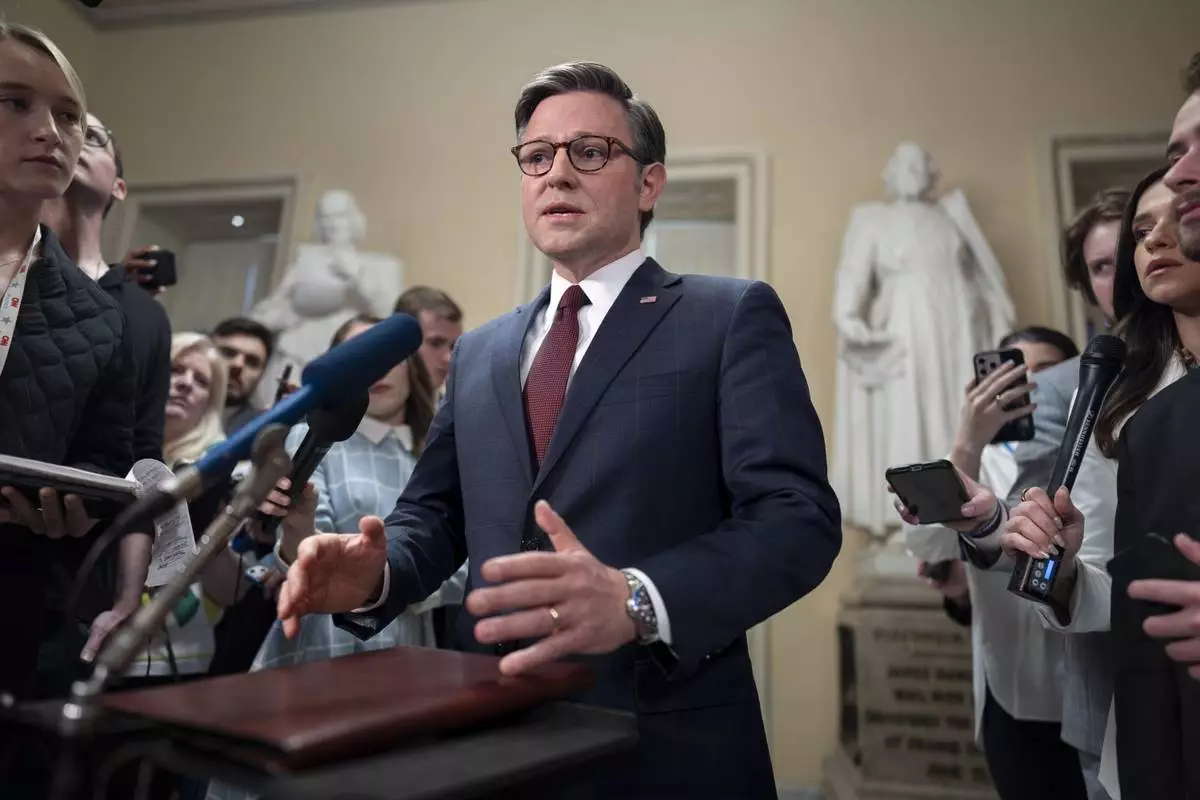
Speaker of the House Mike Johnson, R-La., talks to reporters just after the House voted to approve $95 billion in foreign aid for Ukraine, Israel and other U.S. allies, at the Capitol in Washington, Saturday, April 20, 2024. (AP Photo/J. Scott Applewhite)
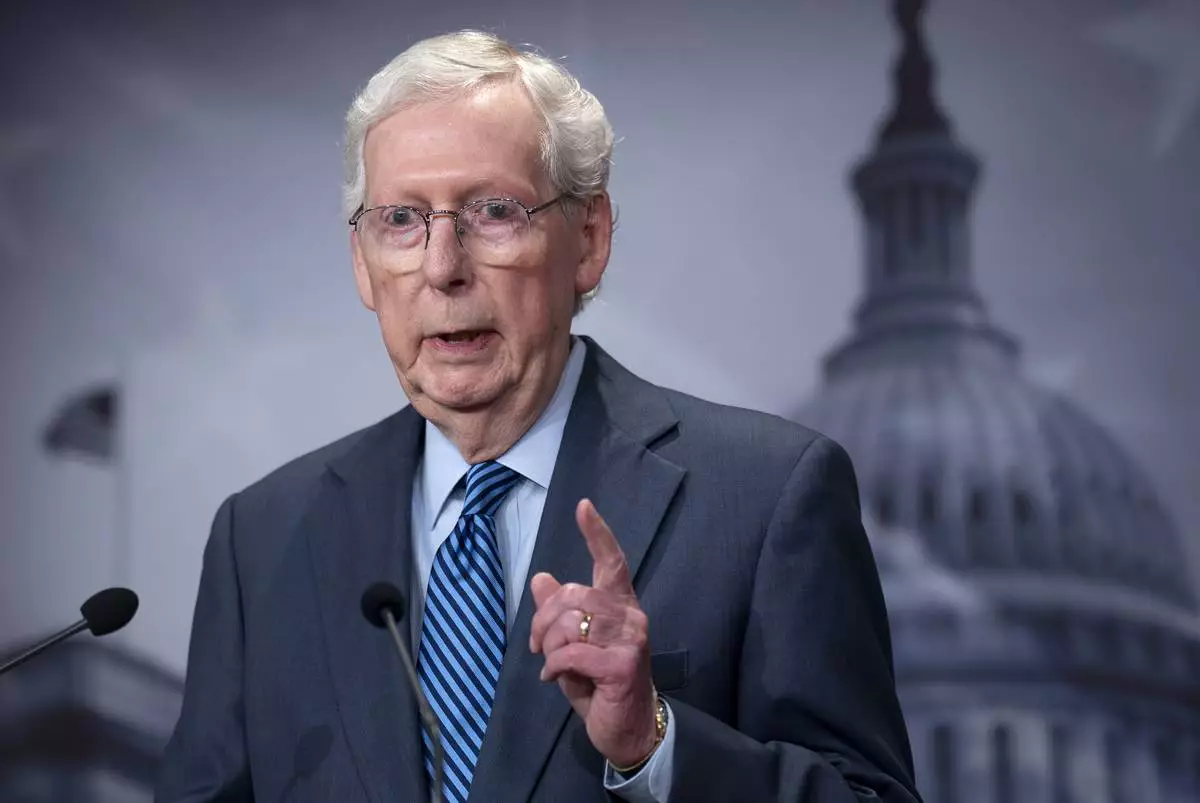
Senate Minority Leader Mitch McConnell, R-Ky., praises support for Ukraine as the Senate is on track to pass $95 billion in war aid to Ukraine, Israel and Taiwan, at the Capitol in Washington, Tuesday, April 23, 2024. (AP Photo/J. Scott Applewhite)
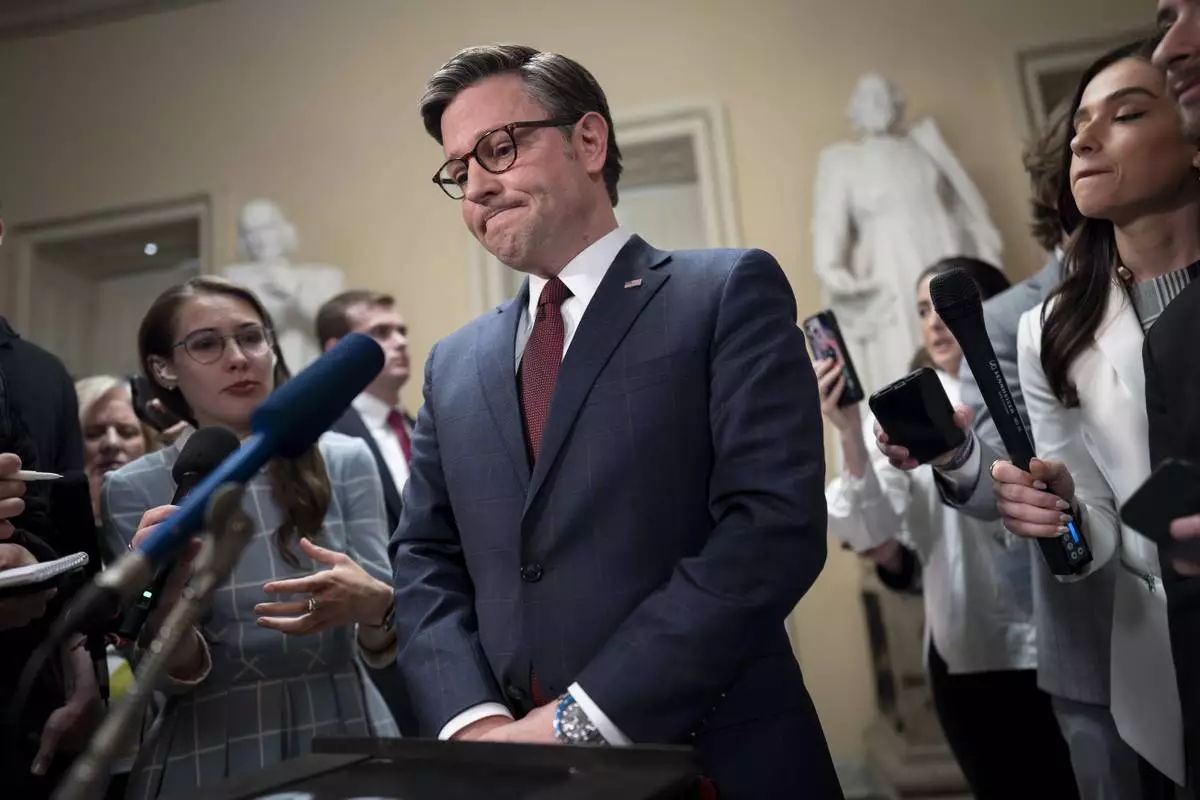
Speaker of the House Mike Johnson, R-La., talks to reporters just after the House voted to approve $95 billion in foreign aid for Ukraine, Israel and other U.S. allies, at the Capitol in Washington, Saturday, April 20, 2024. (AP Photo/J. Scott Applewhite)
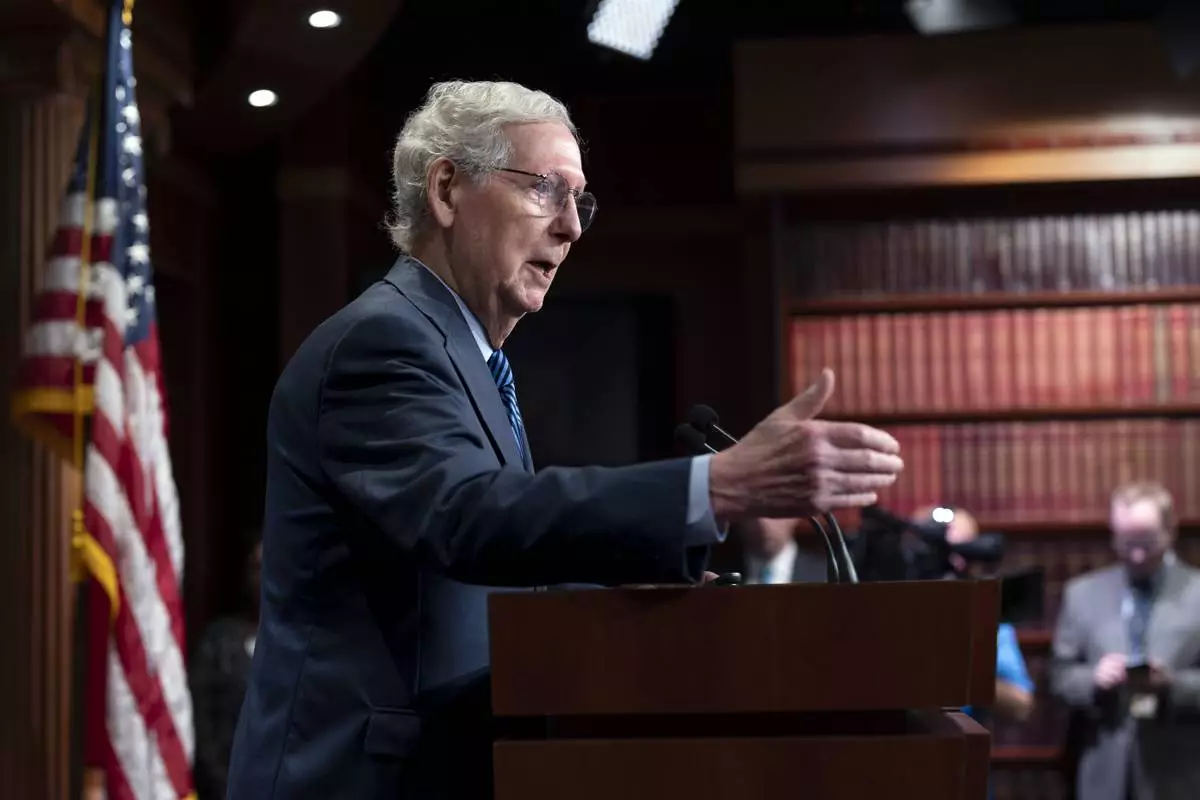
Senate Minority Leader Mitch McConnell, R-Ky., praises support for Ukraine as the Senate is on track to pass $95 billion in war aid to Ukraine, Israel and Taiwan, at the Capitol in Washington, Tuesday, April 23, 2024. (AP Photo/J. Scott Applewhite)
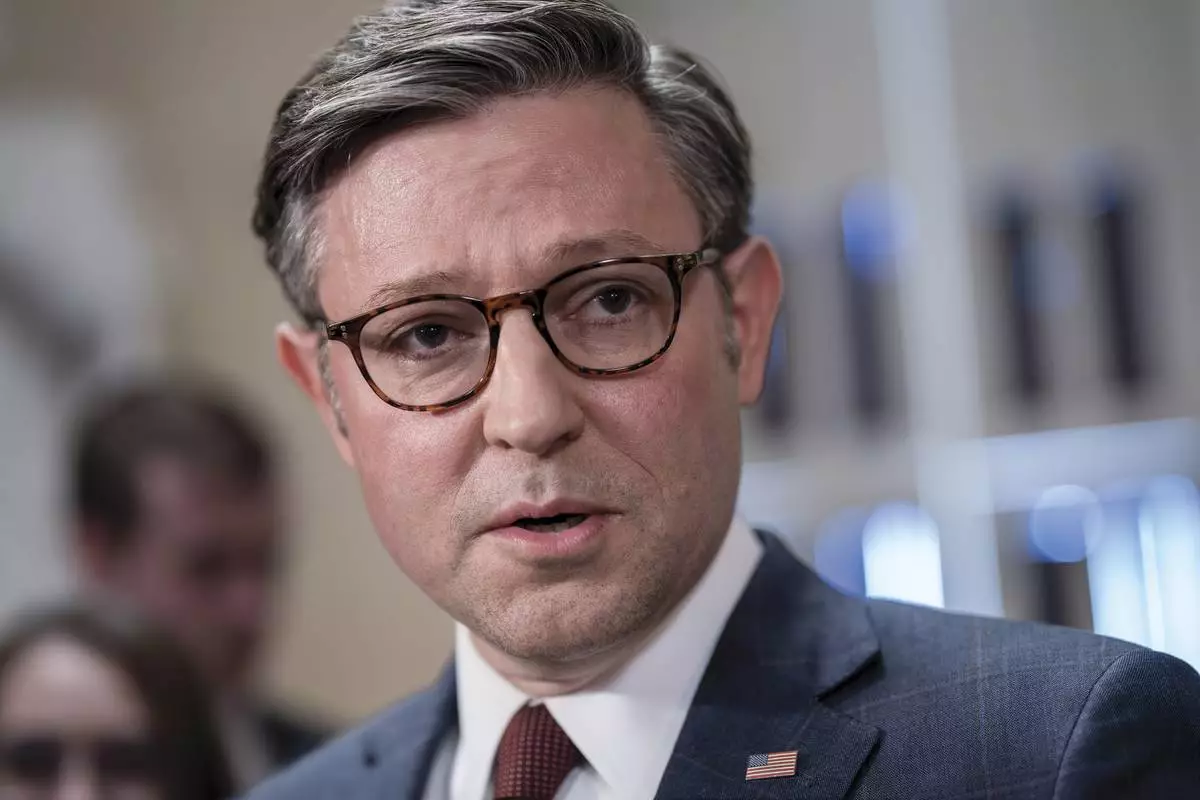
Speaker of the House Mike Johnson, R-La., talks to reporters just after the House voted to approve $95 billion in foreign aid for Ukraine, Israel and other U.S. allies, at the Capitol in Washington, Saturday, April 20, 2024. (AP Photo/J. Scott Applewhite)
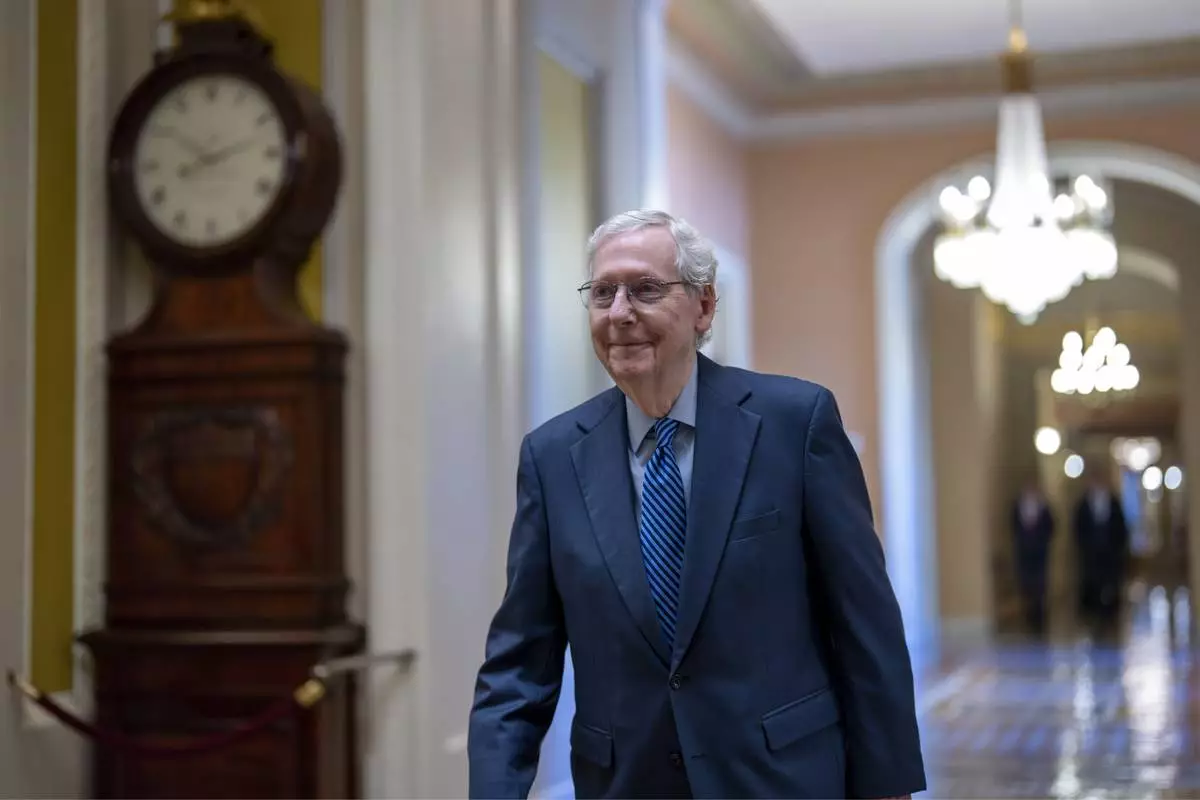
Senate Minority Leader Mitch McConnell, R-Ky., walks to the chamber as the Senate prepares to advance the $95 billion aid package for Ukraine, Israel and Taiwan passed by the House, at the Capitol in Washington, Tuesday, April 23, 2024. (AP Photo/J. Scott Applewhite)














